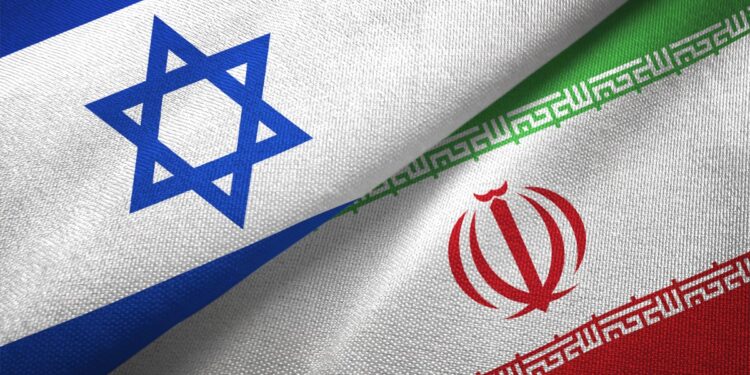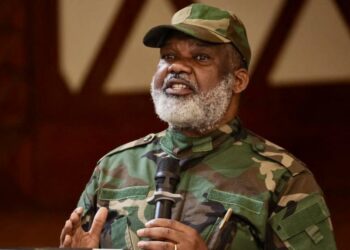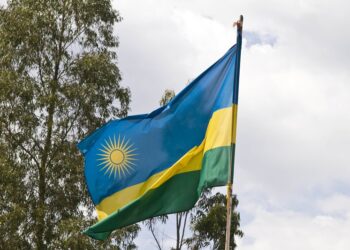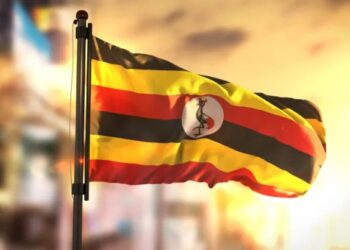The ongoing echoes of the Iran-Israel conflict are resonating far beyond the Middle East, now reaching into the heart of Africa. As tensions simmer and alliances shift, African nations find themselves at a crossroads, faced with the challenge of navigating a complex geopolitical landscape. What happens when distant conflicts seep into the very fabric of a continent, striving for stability and growth?
It is agreeable that the conflict has profound implications that extend beyond the Middle East, influencing various regions, including Africa. A recent report published by the Institute for Security Studies shows that the escalation of Middle East hostilities will have ripple effects for Africa. As tensions between these two nations escalate, their repercussions can be felt in Africa’s political landscape, security dynamics, economic opportunities, and regional alliances.
Historically, Iran has positioned itself as a key player in the Middle East, advocating for anti-Israeli sentiment and fostering relationships with groups that challenge Israeli interests. Its support for entities like Hezbollah and Hamas exemplifies its commitment to opposing Israel, a stance that resonates with some African nations that share similar anti-colonial sentiments or experience their own conflicts rooted in regional grievances. This alignment can influence African political dynamics, potentially encouraging solidarity among nations that perceive a common enemy in Israel and the West.
Moreover, the conflict has implications for African security. Many African states grapple with their own insurgencies and terrorist threats, too. As Iran increases its military influence through proxies, the potential for similar dynamics in Africa becomes evident. The spread of Iranian-backed militant groups could expose existing tensions within the continent, particularly in regions like the Sahel and the Horn of Africa, where “terrorist groups” are already active. This scenario raises concerns about regional stability and the capacity of African nations to respond effectively to new security challenges.
Economic stability and Security
The conflict, though distant, pulls Africa into its orbit and may soon start forcing governments to confront the rising prices of essential goods, dwindling investment, and growing uncertainty that erode the foundations of economic growth.
For example, sometime on the 1st of April, South Africa, Nigeria, and Kenya urged restraint following Iran’s massive drone and missile attacks on Israel, which was a retaliatory response to Israel’s suspected strike on Iran’s embassy in Syria. The call for calm reflects the continent’s deepening geopolitical divide as African countries navigate their relationships with Iran and Israel amidst broader Middle East tensions. In reference to a piece titled “Iran’s Rising Influence in Sub-Saharan Africa,” it is pertinent to state that the situation is complex, with Iran seeking to expand its influence in Africa through diplomatic and economic ties, based on the fact that Africa has enormous potential as the largest economy.
Security, too, is at stake. As global powers realign, Africa’s strategic significance becomes a chessboard for competing interests. With resources and influence at the heart of these maneuvers, the region faces heightened risks of proxy battles and political manipulation. The Iran-Israel conflict is a simple reality: no region exists in isolation, and the economic costs of distant wars have a way of reshaping local realities in unexpected and profound ways. For Africa, the price of this conflict may come in the form of disrupted trade, weakened security, and the need to adapt to a shifting global landscape.
African countries are walking a delicate balance between their Middle Eastern partners and their own regional interests. “The Republic of Kenya notes with profound concern the worrying developments in the Middle East that began on October 1, 2024… Kenya’s concerns at this time are, first and foremost, with the Kenyan diaspora in Israel, Iran, Lebanon, and across the Middle East,” a statement by Kenyan Prime Cabinet Secretary and Foreign Affairs Cabinet Secretary Musalia Mudavadi while avoiding taking sides on the matter. He urged restraint in the conflict, warning of devastating economic impacts on Eastern Africa, particularly through disrupted global oil prices. He emphasized that the region cannot afford another economic shock.
Economically, the Iran-Israel conflict will impact African nations through energy dynamics. Iran’s oil reserves make it a significant player in global energy markets. If the conflict intensifies further, fluctuations in oil prices may affect African economies, many of which are heavily reliant on energy imports. Countries like Egypt and South Africa could face economic pressures if rising prices hinder their growth. Conversely, nations that can capitalize on the situation—such as those involved in oil production or alternative energy sources—may find opportunities to strengthen their economic positions.
Trade routes also come into play. The conflict can lead to disruptions in maritime routes, particularly in the Red Sea, a vital passage for global trade. Any escalation in hostilities that impacts shipping lanes could have cascading effects on African economies that depend on these routes for imports and exports. Countries with strategic ports, like Djibouti and Sudan, might find themselves in a precarious position, balancing their roles as transit points against the backdrop of heightened regional tensions.
To mitigate the economic fallout from the Iran-Israel conflict, African nations must seize the opportunity to strengthen regional cooperation and diversify their economies. Africa should keep investing in intra-African trade through platforms like the African Continental Free Trade Area (AfCFTA), so the continent can reduce its reliance on external markets that are “vulnerable” to global conflicts. Strengthening sectors such as agriculture, manufacturing, and renewable energy will not only boost self-reliance but also provide a buffer against rising global commodity prices and supply chain disruptions. With strategic partnerships, Africa can build economic resilience, ensuring that external conflicts have a limited impact on its internal economic stability.
On the security front, Africa can capitalize on its growing geopolitical relevance by positioning itself as a neutral mediator in global conflicts. By fostering diplomatic dialogue and peace initiatives, African nations can not only contribute to global stability but also strengthen their own security frameworks. Building stronger alliances with non-aligned global powers and regional blocs can ensure that Africa’s voice is heard in international discussions, while enhancing intelligence-sharing and defense cooperation will help counter any security threats that may arise as a result of the conflict. By proactively engaging in diplomacy and prioritizing regional stability, Africa can turn the challenges of the Iran-Israel conflict into an opportunity for strategic growth and increased global influence.
Political Alliances and Diplomacy
Diplomatic relations between African nations and Iran or Israel can also evolve due to the conflict. Some African countries maintain strong ties with Israel, often due to economic, technological, or military cooperation. As Iran attempts to expand its influence, these nations may feel pressured to reassess their alliances. For example, countries in East Africa that have developed relationships with Israel for agricultural and technological advancement might find themselves navigating a complex diplomatic landscape, especially if they face pressure from other regional players who are aligned with Iran.
In addition, the geopolitical landscape in Africa is influenced by external powers that have vested interests in the Iran-Israel conflict. Countries like the United States, Russia, and China are deeply involved in the region, often through military aid, trade partnerships, or diplomatic engagement. Their stances on the Iran-Israel conflict can ripple through Africa, as local governments might align their policies with those of these global powers to secure favorable outcomes. This alignment could either bolster or undermine local governance and political stability, depending on the motivations of these external actors.
However, the conflict presents opportunities for African countries to engage in peacebuilding initiatives. As the African Union and regional bodies like ECOWAS increasingly take on roles in conflict resolution, they could facilitate dialogue and encourage negotiations that may extend beyond the Middle East. By promoting stability and cooperation, African nations can assert their influence on the global stage, potentially mediating discussions between conflicting parties.
Moreover, the conflict is also proof that African nations need to develop autonomous security frameworks. As they face the potential fallout from external conflicts, building robust security infrastructure becomes imperative. Countries in Africa can learn from the experiences of their counterparts in the Middle East and assess their vulnerabilities. This proactive approach could foster collaboration among African states to counter emerging threats, including those potentially stemming from Iranian influence.
Cultural exchanges also provide a unique perspective on the implications of the Iran-Israel conflict in Africa. As Iranian cultural influence spreads through media and diaspora communities, it can shape perceptions and ideologies across the continent. This soft power could resonate with African audiences who relate to Iran’s narrative of resistance against perceived Western hegemony. Conversely, Israeli culture, through its technological advancements and innovations, might appeal to African nations seeking development solutions. These cultural interactions could foster a more subtle understanding of the conflict, encouraging dialogue and cooperation rather than division.
The situation also highlights the importance of regional organizations in addressing the implications of the Iran-Israel conflict. The African Union and regional economic communities have a role in mediating tensions and promoting collaboration among member states. These organizations can provide platforms for dialogue, enabling African nations to discuss shared security concerns and economic interests. A collective approach to addressing external conflicts can enhance Africa’s resilience and capacity to respond to global geopolitical shifts.
Conclusion
Africa is not just an observer in this unfolding drama; it has the potential to be both a battleground and a key player. Will African countries seize the opportunity to assert their influence, or will they be caught in the crossfire of larger power struggles? The consequences of this conflict are far-reaching, pushing nations to rethink their alliances, security strategies, and economic prospects.
Thus, African nations must remain vigilant and proactive, leveraging their positions to foster stability, cooperation, and sustainable development amidst the evolving geopolitical landscape. The potential for both challenges and opportunities underlines the importance of strategic planning and diplomatic engagement, allowing African countries to shape their destinies in an increasingly interconnected world.
ــــــــــــــ
This article expresses the views and opinions of the author and does not necessarily reflect the views of Qiraat Africa and its editors.



























































